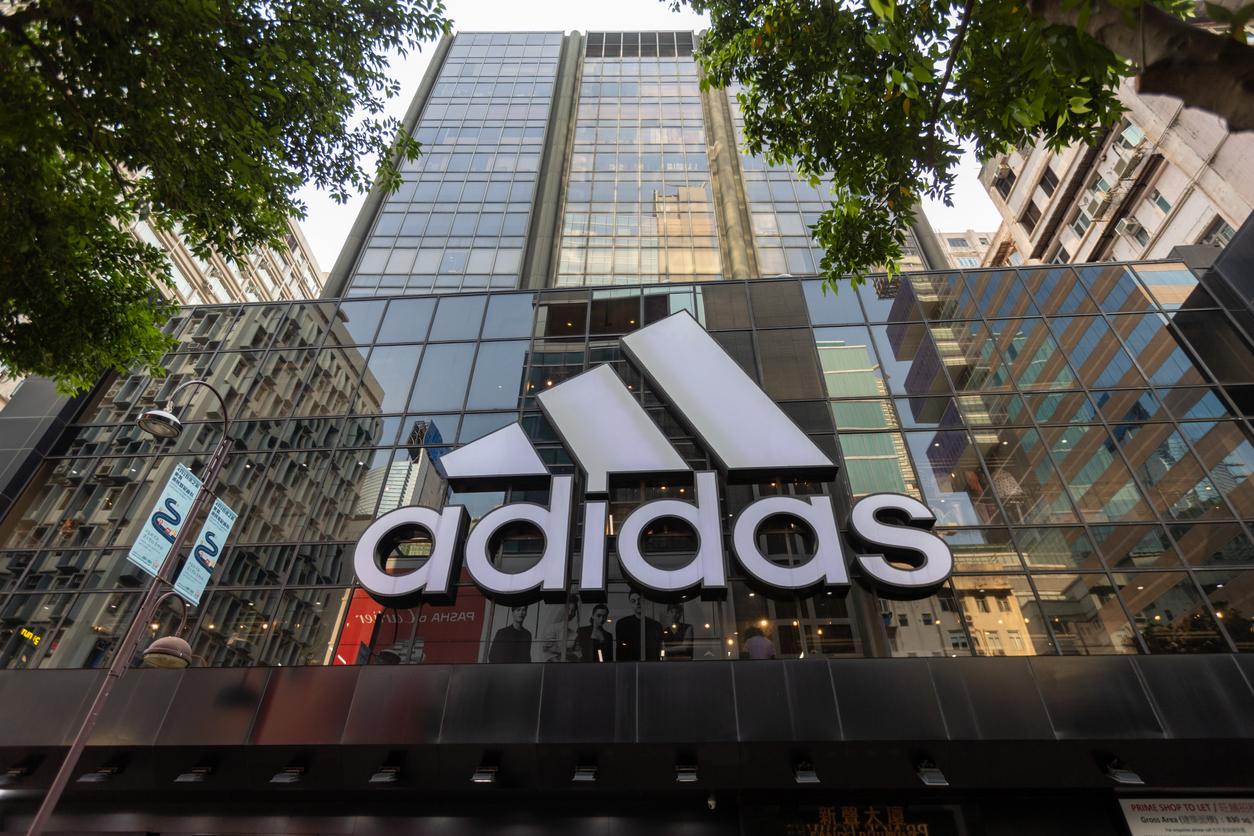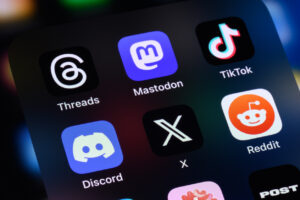The Scoop: Bella Hadid apologizes for Adidas ad
Boeing hopes to slow crisis mode with new CEO, United says flight attendant in Terrell Davis arrest no longer with airline.

Adidas and model Bella Hadid are facing international backlash.
The German athleticwear company created the advertisement for a new retro sneaker that pays homage to an Adidas shoe that debuted at the 1972 Summer Olympics in Munich. The ad features Hadid holding a bouquet of flowers while wearing the shoes and familiar black-and-white Adidas workout attire.
The Munich games are infamously remembered for a terrorist attack by a Palestinian militant that resulted in the deaths of 11 Israeli athletes.
Hadid’s father is Palestinian and she’s donated money to relief efforts in the Gaza Strip in the past, according to a report from CNBC.
Her involvement in the campaign drew condemnation from the American Jewish Committee as well the government of Israel. The country accused her of having a history of antisemitism.
.@Adidas recently launched a new campaign for their shoes to highlight the 1972 Munich Olympics.
Eleven Israelis were murdered by Palestinian terrorists during the Munich Olympics.
Guess who the face of their campaign is? Bella Hadid, a half-Palestinian model who has a history… pic.twitter.com/IgdGq2OLmd
— Israel ישראל (@Israel) July 18, 2024
Hadid said she wasn’t aware of the situation surrounding the 1972 Olympics and wouldn’t have taken part had she known.
“I am shocked, I am upset, and I am disappointed in the lack of sensitivity that went into this campaign,” Hadid said in a statement shared on an Instagram story on Monday evening. “Had I been made aware, from the bottom of my heart, I would never have participated.”
Why it matters: Everyone involved really should have known better.
Adidas, which already has a Nazi-infused history stemming from World War II, has found itself in yet another controversy surrounding allegations of antisemitism.
In 2022, many criticized how long it took the brand to respond to and disassociate itself with Kanye West after the rapper-turned-businessman made antisemitic remarks. Matters were made worse when Adidas’ trade marketing director chastised her company on LinkedIn for staying silent about its ongoing relationship with West, commonly known as Ye.
While a tone-deaf decision, there’s no indication that Adidas intended to offend anyone with its advertising. Hadid is a longtime company collaborator and one of the most popular influencers in the world, racking up the 90th most followers on all of Instagram.
Adidas removed social media posts of the ad campaign featuring Hadid, according to The Guardian. The company also issued a formal apology.
“We apologise for any upset or distress caused to communities around the world,” the statement reads in part. “We made an unintentional mistake. We also apologise to our partners, Bella Hadid, ASAP Nast, Jules Koundé, and others, for any negative impact on them and we are revising the campaign.”
Still, even a little bit of research and foresight would have shown that Hadid has been outspoken about her support for Palestine as recently as the past few months. On May 28, she posted an image of herself on Instagram in a keffiyeh dress created by a Palestinian designer.
View this post on Instagram
Of course it isn’t just Adidas to blame. Hadid’s team should have seen this coming as well. The 27-year-old took partial ownership of the situation, saying on social media that she should have researched the campaign before agreeing to take part. However, she stressed that both Adidas and her personal team “should have known.”
“I would never knowingly engage with any art or work that is linked to a horrific tragedy of any kind,” her statement read.
But it never should have gotten that far.
Editor’s Top Reads:
- Boeing has hired aerospace industry veteran Robert K. Ortberg to serve as its new chief executive, a move the company’s board hopes will the help the company rebound from a series of recent crises involving its 737 Max jet line. The announcement of Ortberg as CEO took place the same day Boeing revealed a bigger loss and weaker revenue than analysts expected, per CNBC. The New York Times reported that Ortberg has a big job in front of him, including a need to shore up a number of operational and challenges. But arguably his biggest task will be to restore consumer trust. The board’s decision to hire Ortberg – a mechanical engineer by trade – aims to send a clear message to investors that Boeing is taking this internal cleanup seriously.
- United is again left backtracking in the case of NFL Hall of Famer Terrell Davis, who was removed from a flight in handcuffs earlier this month. Davis posted a letter from United saying he had been placed on the company’s no-fly list, even though “it was determined (Davis) did nothing wrong.” In a same-day response, an airline spokesperson told CNN the letter “was generated due to the report of the flight attendant – who is no longer employed by United” and that Davis was not banned. The statement also noted that United had communicated that information to Davis’ legal team the day after the letter was sent. However, Davis’ attorney, Parker Stinar, described the claim as “blatantly false,” going on to say “(e)ngaging in tactics in an attempt to discredit the timeline of events is worrisome, to say the least.” The situation is going from bad to worse for United. The company had already admitted to the wrongdoing and was working to correct it, but now there are even more bad headlines and an attorney who’s signaling a big lawsuit.
- Starbucks’ sales declined for the second straight quarter, dropping 3% globally at stores open for at least a year, including a 2% drop in North America, according to CNN. The outlet reported that the earnings report likely reflects national consumer fatigue over high prices at food chains, restaurants and other retailers. Thankfully for businesses, S. prices only increased moderately in June due largely to the declining cost of goods and improving inflation, Reuters reported. But ultimately fast-food and fast-casual businesses rely on a reputation of providing affordable goods. If they can’t live up to that expectation, customers will go somewhere else – or just stay home. To signal a return to affordability, Starbucks outlined plans to roll out a value menu.
Casey Weldon is a reporter for PR Daily. Follow him on LinkedIn.







